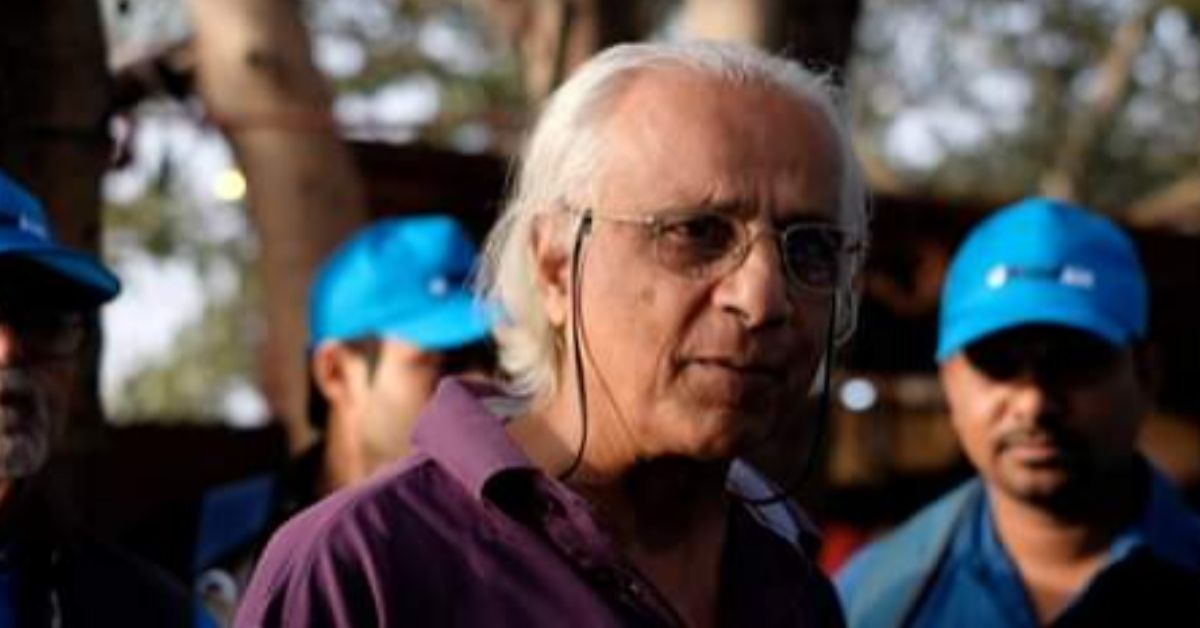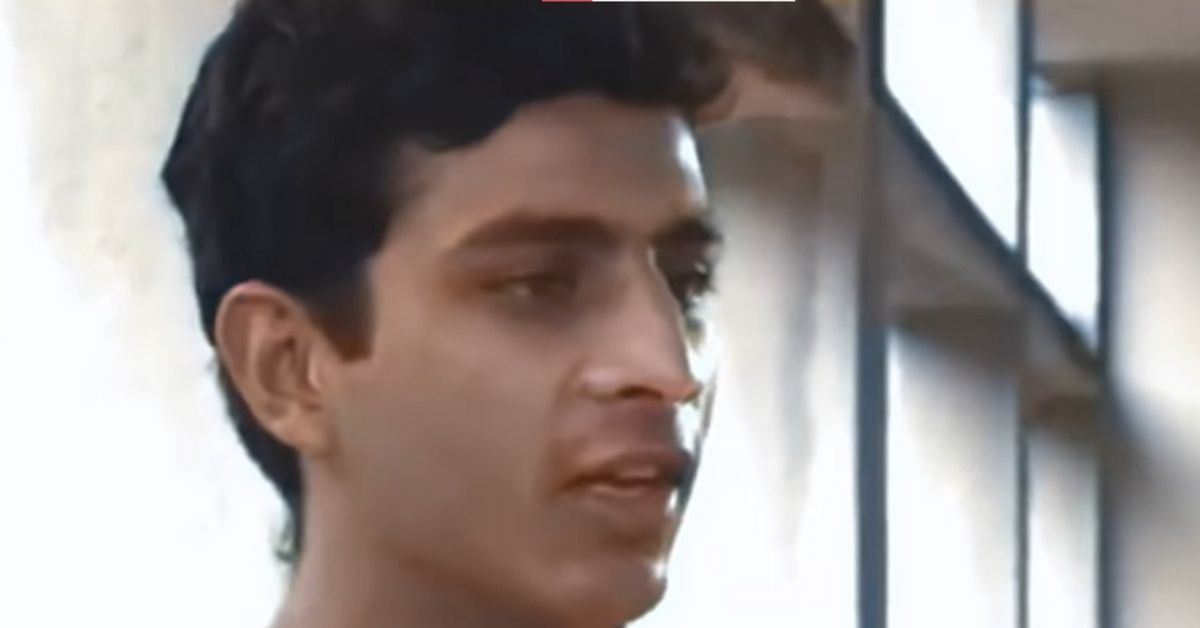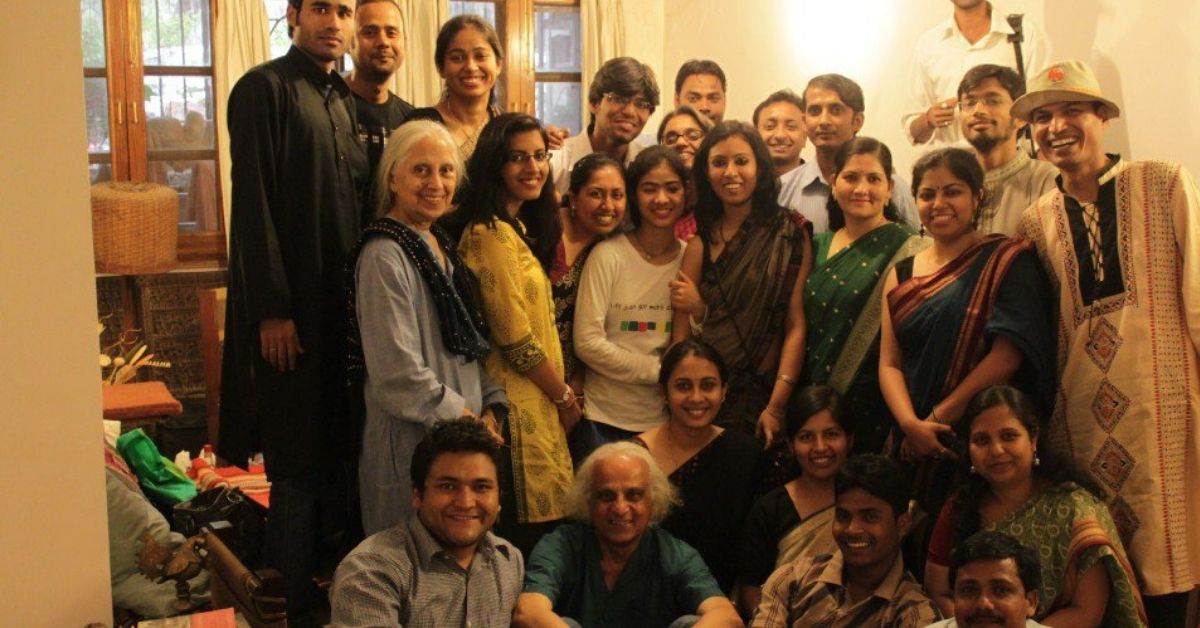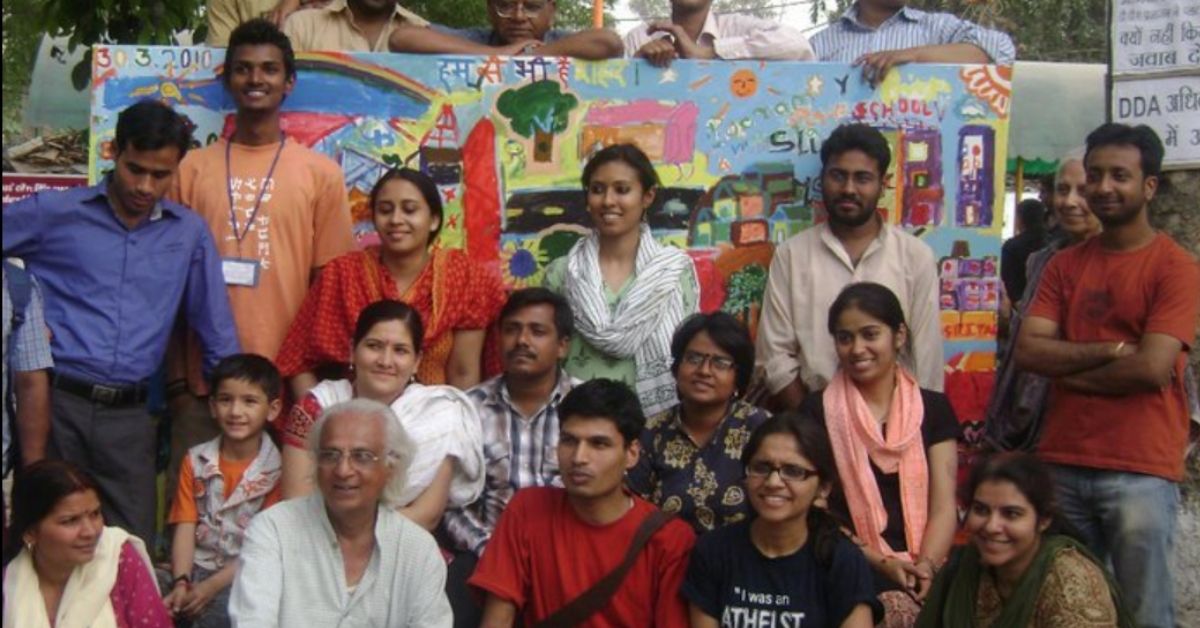In 1967, 20-year-old independent India was at the threshold of ‘young adulthood’. And if you recall the year you turned 20, you’d remember the strange amalgamation of anxiety and excitement you felt. Collectively, the nation was on a similar high, about to embark upon a journey that would mark several defining moments.
For one, Zakir Husain Khan became the country’s first Muslim president. India held its first election without Nehru. In September, the country was embroiled in an exchange of fire with Chinese troops at Nathu La. And as the year drew to a close, Maharashtra’s Koynanagar town was ravaged by a mega-earthquake, leaving around 180 dead, and thousands more injured.
At this site arrived a team of student volunteers, who set up earthquake-safe structures for victims who had lost their homes in the disaster. Among them was 20-something Anubrotto Kumar Roy, a young IITian who would soon learn an important lesson.

Of the people, by the people
“Surely we could teach the ignorant villagers a thing or two about the remarkable progress science had made…We were assured the farmers would welcome us with open arms. The first three days disillusioned us. The farmers knew more than we could teach them…the fickleness of the weather, the varying market prices, the bad supply lines, and the unreliable quality. This was our first defeat, and the pedestal on which we had placed science seemed to shake a bit,” he would detail 11 years later in this paper.
For Anubrotto, who has now come to be known as Dunu Roy, this lesson would be an important one and would go on to shape his 40-year career in rural and urban development, working on many issues – leadership training, environmental planning, pollution control, poverty, land and water, secure settlements, and more.
But before embarking upon this trajectory, Dunu, now 76, was a simple BTech student at the Indian Institute of Technology (IIT)-Bombay, who dreamt of “hitting centuries” and conquering a vast variety of languages. You might remember him as the sweet and fast-speaking Bengali boy from SNS Sastry’s iconic documentary, I Am 20 (1967).
Released by the Films Division of India, the documentary follows a few young IITians – 20-year-olds, to be precise – and chronicles their thoughts, hopes, dreams, and fears for the future of a newly independent nation, as old as them. What were their needs? What were their thoughts on education? What were their hobbies and ambitions? What had they done for India? Which Indian did they admire the most?
For Dunu, the answer to the last question was Mansoor Ali Khan Pataudi. “Great captain, Pataudi,” he said in the documentary. “But, when Pataudi scores a century, then I feel like I haven’t done anything. I feel like if I hit a century, I would be at peace, I’d be happy.”
And what would be Dunu’s version of hitting a century? A lucrative job at a software company? An illustrious career abroad? Turns out, neither.
As he tells The Better India, “Our imagination at that time was coloured by the national movement, a notion of freedom, of a country that would be free of poverty and full of opportunities. But in the 60s itself, the tide had begun to change. We realised soon enough that those dreams would not materialise. It was a challenge to respond to – whether personally, or socially.”
For Dunu, it was a response at a personal level that would catapult societal change – to use the resources he had to leverage technology at the grassroots level. Because an ever-present question remained in his mind – how do you make engineering meaningful?
Fresh out of college, Dunu found himself drawn towards the Front for Rapid Economic Advancement (FREA), a collective of US-based Indians working towards the development of SMEs. Not one for long office hours and tired of the arduous placement process in college, he would go on to work with FREA for four years.
“At first, we were providing professional and technical assistance to small and medium scale industries. Then, it turned into assisting rural groups. Then, we realised that students of illustrious colleges like IITs and IIMs had little to no understanding of the reality of their country. So we began taking students from these universities to study poverty, exploitation and other realities of India,” he explains.

Dunu worked for four years with FREA, which spread to over 14 locations, working with a variety of organisations and institutes, and sent out more than 400 students a year on short term assignments. The lessons he had learnt during his time at Koynanagar would soon find their way here as well.
Sometime later, he and a few colleagues moved on to Shahdol district in Madhya Pradesh. “We learnt that most development groups had their ideas of what had to be done in rural areas. But some weren’t taking into consideration the needs of the people they were working for. We wanted to study and understand this. We thought it would take us four years or so to do that – it took us about 17. Our key learning was that we can’t make a people’s plan, only the people can do that.”
At Shahdol, Dunu and his colleagues began kaam aur kamai, an initiative that encouraged meaningful social work while earning a living within the community. The outcome was a vidushak karkhana, which was a small workshop to repair diesel pump sets and other rural machinery. Here, people lived and worked together, while trying to find a meaningful role they could fit in.
Over the years, this evolved into the Shahdol Group, where Dunu primarily earned through repair work. After almost two decades of trying to involve the community in development planning and implementation, he moved to Delhi for a three-year stint with the World Wide Fund for Nature.
“I helped them set up low-cost units on pollution monitoring and control,” he says. “But eventually, I think they thought I was deviating from their original goal of saving animals, and not nature. So I left.”
‘Freedom of the Mind’
It was then that he set up Hazards Centre in 1996. This is a research group that works with marginalised groups across India to help them face and adapt to changing circumstances and understand how to deal with anything dangerous to their survival. “The idea is to make them understand the methodology of dealing with these dangers. If they find it useful, we teach them how to implement it. We don’t define what a hazard is – if a group feels like something threatens their survival, we help them develop a plan as to how to tackle it,” he explains.
Sub-groups in the organisation include local governance, labour, environmental issues, and, in the past, communications, among others.

Over the years, he has come to find that the communities face several persistent issues, some as basic as understanding what existing laws and legislation even mean. In addition, there’s often a qualitative description of their problems, which don’t have much leverage, he says.
Dunu says that for managing hazards and disasters, they work with communities to quantify this data, for example, in terms of how many households or individuals or groups are affected. “This gives the community the ability to include facts, figures and terms based on their experiences. If that is challenged as incorrect, they can then turn back and ask for a better database. This, we have found, works very well in helping them understand their relationships with other structures,” he explains.
He adds, “Communities want you to talk to them and address them in a language and way that they understand. For example, they learn that calling governments and authority figures adhikari would be incorrect – adhikar means rights, and rights are vested with the people, not with governments. This begins to change the balance of power and helps enormously in articulating and standing by their arguments, leverage with politicians, institutions and the like. It can also challenge the nature of the right.”
And 54 years ago, when I Am 20 was released, a young Dunu had spoken of a variation of this truth – that true independence comes from the freedom of the mind. To teach people to think for themselves is something that he has laid great emphasis on. “In today’s scenario, especially with the amount of propaganda and misinformation, this holds truer than ever. Presently, it’s even more imperative to think for yourself, be critical, and be reflective. Your mind has to be free to distinguish the real from the fake.”
Hitting Centuries
Over the last 40 years of his career, Dunu has watched India change dramatically – in some good ways, and some bad ways.
“We’ve seen urban labour in different shapes and sizes. Urban groups tend to focus on shelter, but our studies have shown that more emphasis is needed on livelihood. Slums are an expression of livelihood because workers then squat wherever there’s work. Work determines shelter, and not the other way around,” he explains.
“Secondly, we have found through our studies that this lack of shelter near livelihoods is a government failure. Every master plan is incomplete – all planned units are never built. So large labour and lower-middle-class population never find access to these shelters. And that’s how these so-called unauthorised and illegal colonies come up, because, where else will they go? Their ‘illegality’ stems from government failure to perform its functions.”

“Since around 1990, there has been a shift from accountability to people, a focus on social welfare, to very economic models. In ‘96, through five-year plans and so on, we began to see a gradual conservatism and an anti-people ideology, particularly at the Central level. Governments see their roles on how to become more investor-friendly,” he opines. “When you abandon that focus on social welfare, you’re no longer willing to listen to the people.”
So how far is India from what the youth envisioned decades ago? “Oh, very far,” he says. “But I don’t think those of us in our 70s have given up on that vision. This is a period of survival. That spirit that we had in the 60s and 70s remains. I’m beginning to see it in the youth today. The fact that the documentary has gone so viral over the last two-three years means that today’s generation resonates with us somehow. When I interact with young people, I find that the urge to do something, the desire to learn more, is still very vigorous. Student groups, women, workers’ associations – they’re not willing to give up.”
As far as fulfilling the dreams that he spoke of in I Am 20, Dunu laughs and says, “Well, I did manage to learn German and Russian. French, not yet, but there’s still time.”
And what about that elusive century? How close has he come to that feeling of happiness and peace? “When I see that look, that gleam in people’s eyes, that they’re beginning to understand when something hits home and they begin to form a picture in their heads. When this feeling dawns on the groups I work with, it lends an edge, a level of excitement in their language, in the way they work. They have hopes and aspirations about the work they’re going to do, and how they’re going to negotiate through a world that is becoming increasingly hostile.”
Edited by Yoshita Rao
No comments:
Post a Comment